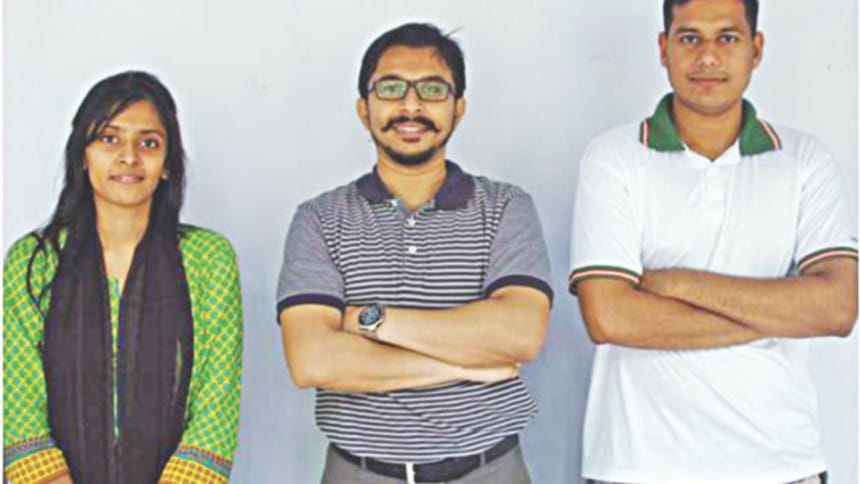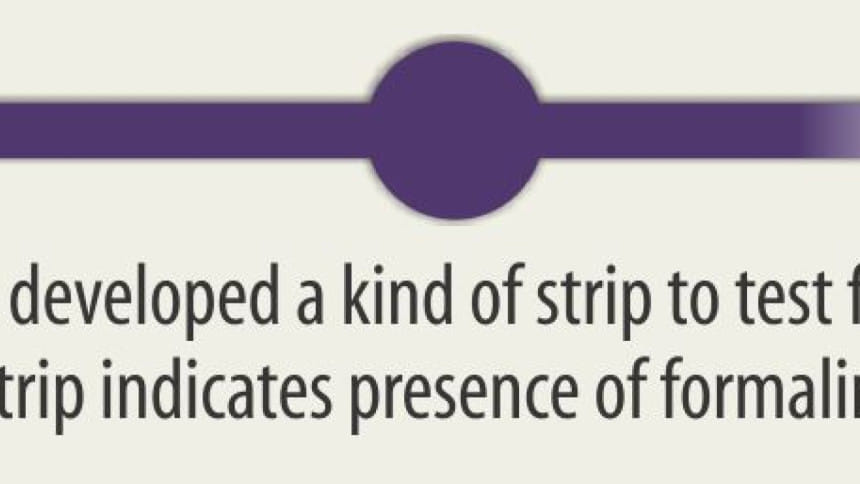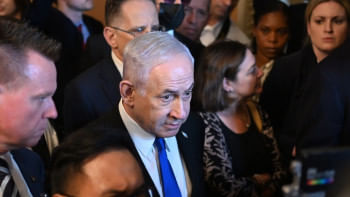Formalin Test in Food Items: Simple solution, minimum cost

Consumers can now be assured of food safety themselves just by using a litmus-like paper designed by Buet researchers to determine the presence of formalin in food items.
A drop of a drink on the paper can help learn whether it is safe. To know if any fruit, vegetable or other solid food item is adulterated with formalin, a small amount of water from washing them can be used.
And this simple test will cost just Tk 1 each strip.
Circles on the chemically-treated paper will turn purple to show that the liquid sample has formalin in it. The deeper the colour becomes, the more formalin is there in the food item.
The diagnostic paper can detect formalin concentration as low as a few ppm to as high as 1,000 ppm.
Formalin, though naturally found in certain food items at a very low level, is illegally added at times to preserve food for longer, putting public health at risk.
The invention would facilitate curbing the unbridled use of the toxic substance in food items.
Mohidus Samad Khan, the lead researcher and assistant professor of the chemical engineering department of the Bangladesh University of Engineering and Technology, said he had the opportunity to work on bio-active papers during his PhD at Monash University and post-doctoral research at McGill University when he worked with two top research groups.
As part of his PhD and post-doc projects, Samad Khan developed diagnostic papers to detect blood groups, presence of enzymes, viruses, etc.

His blood grouping work, featured in MIT Technology Review, won many national and international awards and secured research funds.
“My team and I have secured patents of our inventions in the USA, Australia, New Zealand, China and Europe,” said Samad Khan who teaches chemical engineering at Buet.
When he came back to Bangladesh in 2013, formalin in food was a burning issue that prompted him to think of doing something about it.
He began working on this project the next year with small grants from Buet's Committee for Advanced Studies and Research, and Buet Chemical Engineering Forum.
Samad Khan's students, Md Nazibul Islam and Mehnaz Mursalat, also contributed to the research. They are the co-inventors.
Eventually, the team succeeded. Now Samad Khan is in talks with a few companies and entrepreneurs showing interests in commercialising the product.
“Developing a paper to detect formalin was my professional commitment. I wanted to apply my experience and expertise in developing a low-cost and user-friendly technique.”
The focus was also on designing something with higher accuracy that can be manufactured in Bangladesh, for the people of Bangladesh, the lead researcher added.

 For all latest news, follow The Daily Star's Google News channel.
For all latest news, follow The Daily Star's Google News channel. 



Comments